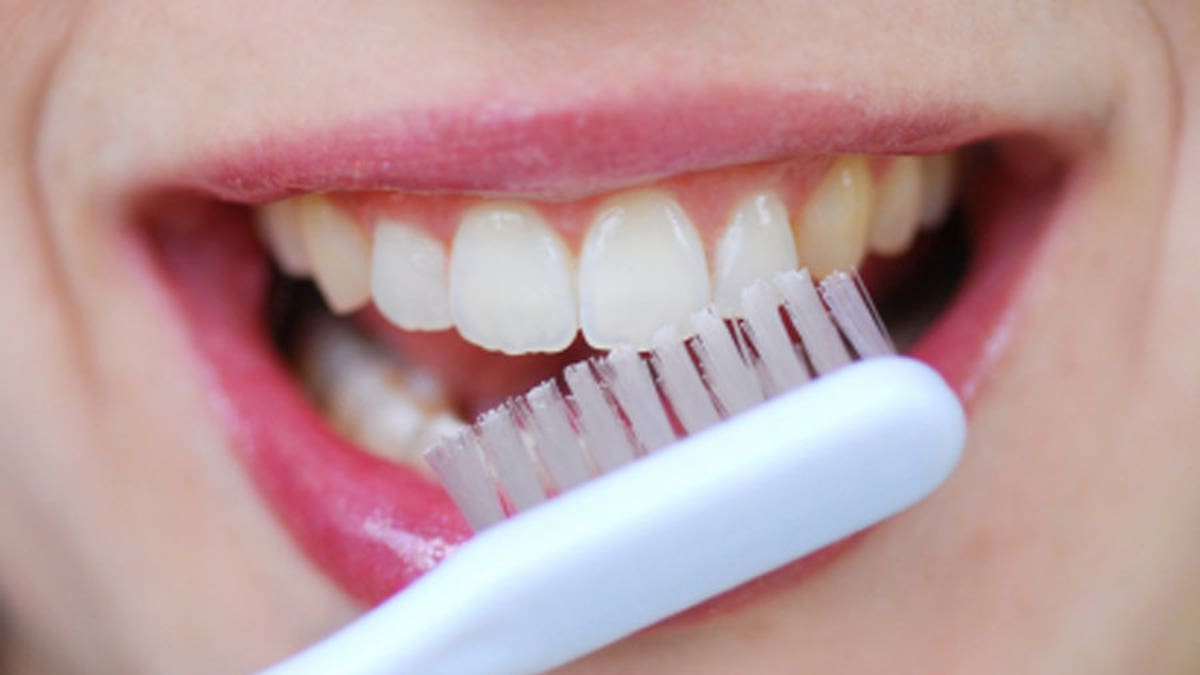
(iStock)
You’ve cut down on coffee, nixed sushi, and exercise most days, but what you may not realize is that oral health is just as important when you’re pregnant.
Dental problems during pregnancy are quite common, with approximately 40 percent of women who have gingivitis, cavities, and periodontitis, according to a recent report by the American College of Obstetricians and Gynecologists (ACOG). And left untreated, many conditions can be harmful to you and your baby.
Here, find out why dental problems are more common during pregnancy, if you’re at risk, and what you can do about it.
Pregnancy gingivitis and more.
One of the most common dental conditions is pregnancy gingivitis, which can cause red, tender, and swollen gums that bleed easily. Some women may even develop a benign tumor in their mouths, which can be removed or will resolve itself after giving birth, according to Dr. Joseph Banker, founder of Creative Dental Care in Westfield, NJ.
Pregnancy gingivitis occurs because the increase in the hormone progesterone during pregnancy causes an exaggerated response to the plaque that’s already in your mouth. “The reaction to those toxins and those poisons from the plaque build-up is increased,” according to Dr. Amanda Seay, Orbit for Kids gum spokesperson.
And even if you’re diligent about brushing and flossing, pregnancy gingivitis can still be a problem. If left untreated, it can lead to periodontal disease, which studies show increases your risk for having a preterm and low birth weight baby.
Plus, if you have a history of periodontal disease, you’re more likely to have dental problems during pregnancy as well.
If you’re pregnant or planning to become pregnant, here’s what you can do to prevent dental problems.
Brush and floss.
Brushing after every meal and flossing at least once a day are the best ways to keep your teeth and gums healthy. Go one step further with an alcohol-free rinse and a tongue scraper which both remove bacteria, Banker said.
Go to the dentist.
According to the same ACOG report, between 2007 and 2009, 35 percent of women had not seen a dentist within the past year and more than half had not seen one during pregnancy either. Experts agree that if you’re trying to become pregnant or undergoing infertility treatment, getting your oral health in check beforehand is a no-brainer.
Get cleanings every 6 months or more.
Research shows there is no risk having routine dental care during pregnancy, and dental cleanings are your best line of defense. Every 6 months is ideal, but your dentist may recommend more frequent cleanings especially if you have a history of gingivitis or periodontal disease.
Eat right.
It can be a challenge to eat healthy when you’re dealing with morning sickness, but trying to avoid sticky foods and eating course, fiber-filled fruits and vegetables, nuts, and cheese can help. If you drink soda or coffee with sugar, have a cup but don’t sip on it all day, Banker said.
Chew gum and drink water.
“Saliva is the greatest natural defense mechanism that we have,” Seay said. If it’s been hours between brushing, chewing a sugar free gum with xylitol can increase the salivary flow which washes away food debris, neutralizes plaque acids, and keeps bacteria at bay. After a meal, drinking a glass of water can help too.
Treat infections.
“If there’s an emergency, you have to deal with it,” Banker said. And the risk of infection from an untreated dental problem, like an abscess, poses a greater risk to you and your baby than the dental procedure itself. In fact, a dental infection can cause pre-eclampsia, pre-term birth, developmental delays—even miscarriage.
New ACOG recommendations say dental x-rays are safe since most dentists now use digital x-rays, which have 10 to 20 percent of the previous amount of radiation. Plus, the abdominal shield and thyroid collar, “blocks out almost—if not all—the radiation that would even get near the developing baby,” Banker said.




















